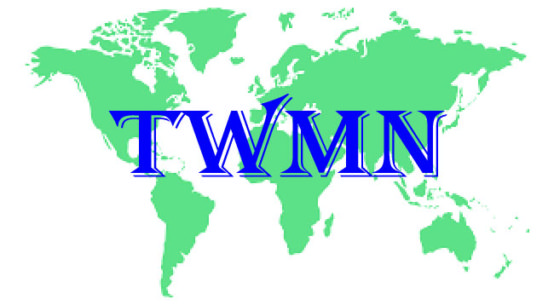
The unilateral decree or imposition by Taliban authority in Afghanistan on all women media personalities anchoring news on various public and private television stations to wear masks and cover their whole body except for the eyes or risk facing the wrath of the law makes sad reading.
The new order effected on 21 May this year as confirmed by Akif Mahajar, the spokesman for the Taliban’s Ministry of Vice and Virtue, as cited by Reuters, is laughable, barbaric and a serious violation of human rights and needs global condemnation by all purveyors of press freedom.
Mahaja is said to have categorically instructed and we quote: “Yesterday we met with media officials… they accepted our advice very happily,”: “The last date for face covering for TV presenters is May 21,”
We also cite various voices of concern from media houses and commentators that have frowned at the heightening and uncouth decree imposed on the practitioners whose rights are being violated with impunity-the degree of subjugation which the world will live to shudder at for much of the time to come, especially now that this is coming in the 21st Century.
Nilofar Ayoubi raises a voice in her tweet arguing: “The overwhelming oppression makes it hard to breathe”. Another voice and a prominent Tolo presenter, Yalda Ali, in her video posted of herself while putting on a face mask was candid in her caption: “A woman being erased, on orders from the virtue and vice ministry.”
Other voices have joined the protest against the decree. Idrees Farooqi, chief editor and head of news at 1TV is cited by Al Jazeera saying: “We stand beside our female colleagues and protest this order because we know how difficult it is to present on TV with your face covered,”
Other Journalists and activists in Afghanistan and across the globe have also taken to social media to protest against the move by sharing pictures of them wearing masks alongside the hashtag #FreeHerFace.
Several female anchors and presenters had, according to local media, posted their various photos on social media showing themselves with their faces covered with face masks while they presented programmes-a new norm in the media profession and a contrast to the rudiments and fundamentals of journalism.
One television producer had said the order meant “only the eyes of the female presenters must be visible.” Last March, the Taliban had banned all visual foreign media outlets, including the BBC and Deutsche Welle, as officials were unable to check content, including the reporters’ attire, a Taliban official was cited as saying.
The move comes days after authorities ordered women to cover their faces in public, a return to a policy of the Taliban’s past hardline rule. Arguably as per religion demand, most Afghan women wear a headscarf for religious reasons, but many in urban areas such as Kabul do not cover their faces.
During the last Taliban rule from 1996 to 2001, it was obligatory for women to wear the all-encompassing blue burqa. Since the Taliban returned to power in 2021, it has imposed severe restrictions on the media and cracked down on human rights in Afghanistan.
It has since emerged as a violation of human rights for the female broadcasters and indeed all girls and women in Afghanistan that have been deprived of many of their rights, including education, work and freedom of movement.
While we may have no jurisdiction over the way the Taliban wants to rule its people to entrench their Islamic authority or doctrine, compelling all media women in Afghanistan to cover their bodies including their faces or “Have a Hijab” when presenting or broadcast news on the screen, as per their religion we the Third World Media Media Network (TWMN) condemn in no uncertain terms.
This is a serious oversight and the gravity of abuses of the media practitioners in that country which have been abrogated to the hilt.
Arguably, while we appreciate that the covering of the faces by female news anchors is good in preventing the contracting of respiratory diseases including the COVID -19 plague-as has been the ‘Asha’-a guidance from the Centers for Disease Control and Prevention (CDC) seeking the compulsory use of face masks to reduce infections.
Apparently, the situation is different when it comes to media terms and rudiments of the profession. Imposing the wearing of masks or covering of the face-leaving only the eyes, journalistically makes communication more difficult when watching television. This is so especially for people who have trouble speaking or hearing.
By default, the new regulation demanding the covering of the mouth and part of the face muffles the sound from the news presenter (s), making it more difficult to understand speech and some higher-pitched voices.
Masks or any garment worn over the face and mouth take away the viewers’ ability to read lips and see facial expressions, which help us better understand what we’re hearing. Speaking or reading the news with a mask can be hard for people with communication problems like aphasia (language disorder)or voice problems.
Masks can be uncomfortable for people who wear hearing aids or cochlear implants.
As TWMN-championing media rights, we condemn this unilateral decree imposed on the female professionals that are being compelled to cover part of their faces and we seek a “rethink of the decree” as it contrasts the fundamentals of the profession.
Arguably, the Taliban regime may wish to know is that “the facial or body outlook of the female news presenters or anchor is both a beauty or commercial attraction world over. Allow the Afghanistan women news casters or anchoring to wear what is described ‘decent dressing”. “It is both an attraction and commercial act for one to remain glued to a television set seeing a woman’s full face.”
Sohel Manzur Geoffrey Kapembwa
President Secretary General


